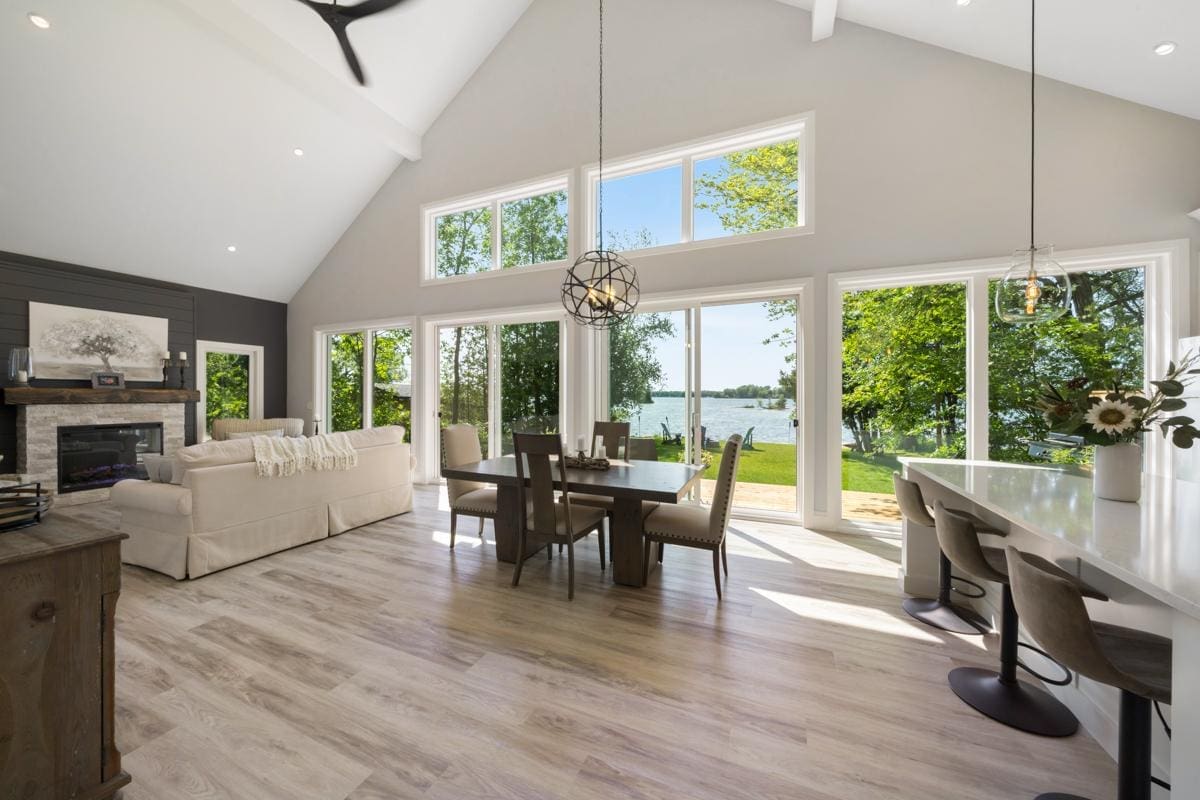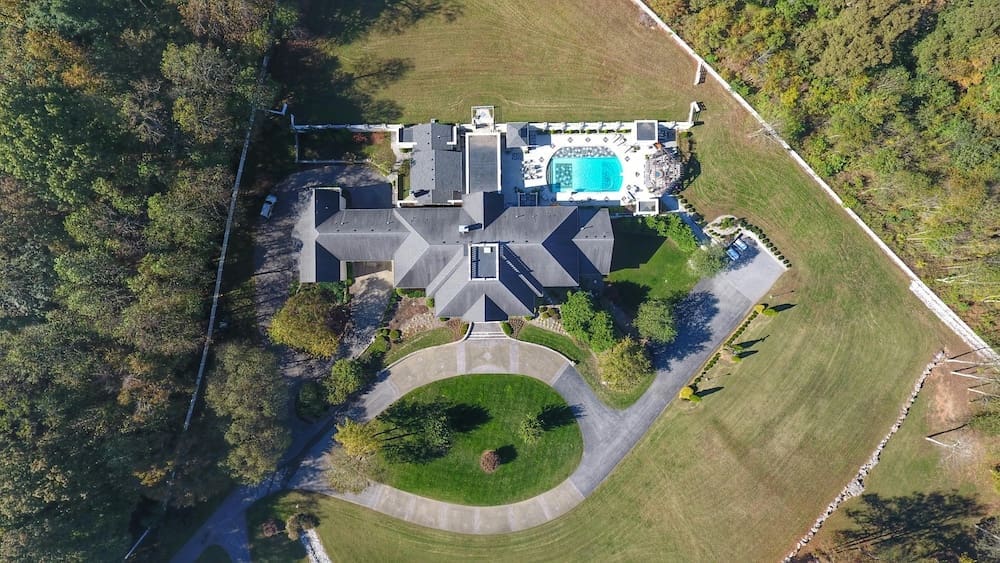
Every house has a story! Home staging is about the experience of viewing the home to feel the story it must tell in the best way possible. It accentuates the previous owners memorable experience of living there but also enables a potential buyer to envision their best life in the home. To accomplish this, we need to maximize appeal in the most generic and appealing way possible.
1: What Does Home Staging Mean?
Home staging is part of the marketing mix and sales strategy for a home to make the home and property appear as appealing as possible to the broadest set of buyers. The goal is to accentuate the positive features of a home and minimize any limitations that could be perceived by potential buyers.
It helps interested buyers visualize their life in the home. It inspires an emotional feeling about the home. This is important as most buyers are looking for that emotional connection to a home they ultimately choose to buy–a home where memories will be made.
This needs to be accomplished without being too obvious so as not to make any potential buyer feel deceived about any potentially perceived flaws in the home. Staging also can very practically allow buyers to see spaces in the best way they can be used.
2: Staging Helps You Sell Faster
Home staging has many potential benefits. The first is that it will allow potential buyers to envision themselves in your home. They can “feel” and more easily see how their life will play out in the home. The home also feels clean after all is done and gives a buyer the feeling that the home is well cared for so they won’t anticipate any additional costs right away in upkeep which can affect negotiations as well.
Staged houses also will have greater appeal online. It is commonly understood these days that 96% of buyers first encounter a home online. Potential buyers will look at the pictures, and enlarge them, taking in all the details room by room.
So, in staging we are showing the best that we have to offer with clear avenues of visibility to take in the spaces visually. We DO NOT want potential buyers to make an online decision about a home we are trying to sell but rather give them enough motivation to book a personal viewing.
At that point when the buyer makes the commitment to personally view the home they can see so many things they love that the things they don’t love will seem less significant. Staging also shows the home is move-in ready which will increase the appeal to any buyer.
Time on Market
One of the primary benefits of staging is that it can decrease your time on market. The Real Estate Staging Association (RESA) has a staging savings calculator that lets you figure out the costs of carrying a home for a longer listing period versus costs of staging and also has statistics of staged homes versus unstaged homes.
Their numbers are for the US market. (The exact statistics are likely different from the Barrie market, but the differentials can tell the story.)
- Unstaged homes- 143 days on market on average
- Staged homes- 23 days on market as an average.
Looking for even more tips to make the most of your sale? You’ll find plenty of value in the resources below:
- Download Our Seller’s Guide
- What Is Your Home Worth? Book Your Free Evaluation
- 5 Tips For Selling A Waterfront Home
3: When You Should Absolutely Stage
The obvious downside to staging can be the cost. WE don’t trade dollar for dollar in most cases. There must be an accelerator to the cause in time or money. There is also a balance of taking the time to stage versus getting on the market earlier.
Depending on the situation home by home, a balance must be struck to determine of staging or partial staging is going to be of benefit. Every market and property will have different strategies, but staging can particularly for the following categories:
- Vacant homes
- Homes with unique layouts
- Older homes
- Competitive markets
4: How Much Does Staging Cost?
The seller typically covers the cost of home staging keeping in mind that the expense will be recovered and usually accelerated in the higher sales price of the home. Cost really depends on the degree of staging required.
An older home that may need more extensive updating, such as painting or some landscaping or repairs or light fixtures may require a more significant investment than a newer home that is well appointed and may require only decluttering or rearranging which costs nothing other than a to do list. As a basic rule with our team, we only suggest upgrades, renovations, or repairs that will either return a profit in dollars or can expedite the sale.
Most real estate teams will provide a complimentary home staging consult. We do. This will serve to identify potential enhancements and also project anticipated costs in time and money. If there are significant improvements needed the home stager and/or Realtor® will have trades to accomplish these items that will be the cost of the seller. In many cases the home staging consultation results in a laundry list of items that will cost some of the homeowners time and sweat equity.
5: Staging Is Not One-Size-Fits-All
Depending on your listing, you may not need to go all out with full staging. Popular industry “rules” don’t always apply. Each home needs that custom insight to review what works. Cost really depends on the degree of staging required for each individual property.
In many cases we explore less overwhelming alternatives:
- Virtual staging
- Partial staging
- Decluttering and minor updates
6: Ready to Begin the Staging Process?
Stagers can offer different perspectives and different services. Some include shopping for recommended items from light fixtures to plants or accent pillows and bedding. Many have contractors and handy people to service needed repairs or alterations.
Other services a home stager can include:
- Discussing how best to furnish a space and recommending which furniture, window treatments and accessories should be removed, added or changed.
- Pointing out any needed repairs or maintenance issues.
- Recommending which rooms should be staged, particularly in vacant homes.
- Advising homeowners on ambiguous spaces.
Not all rooms need staging, typically. Some homes with random rooms or funky floor plans can be improved with creative staging and furniture placement.
Fine Tuning the Effect
Staging removes distractions so a buyer can take in the best features of a home and the potential for their lifestyle in the spaces. It also can help to accentuate the scale of a room by showing optimal furniture placement and flow patterns in a room.
Remember the first goal is to get those pictures perfect so they grab the attention of potential buyers and will also stand up to repeated online scrutiny. Every house tells a story, staging helps to add structure and the right emotive wording.
Do you want individual guidance on how to stage your home to sell quickly? Our Barrie real estate agents are happy to answer any questions you have. Reach out to hello@weeksgroup.ca or call 705.305.4174 to get started.

We’re In Your Corner
Get advice about buying or selling, relocating, or building your dream home from our local market experts.



